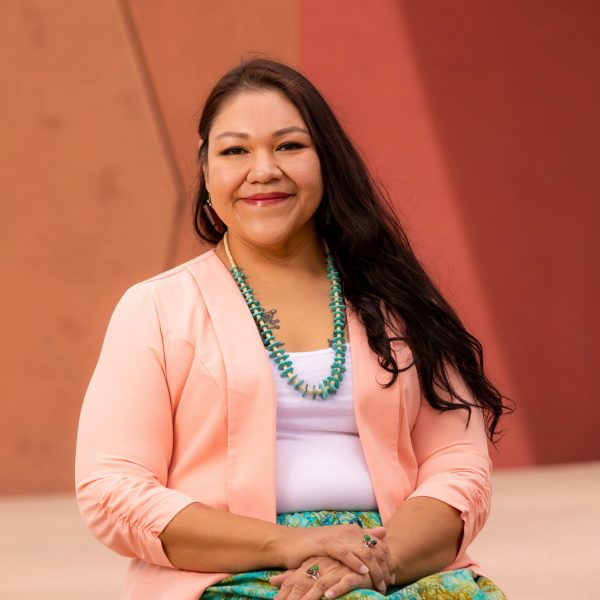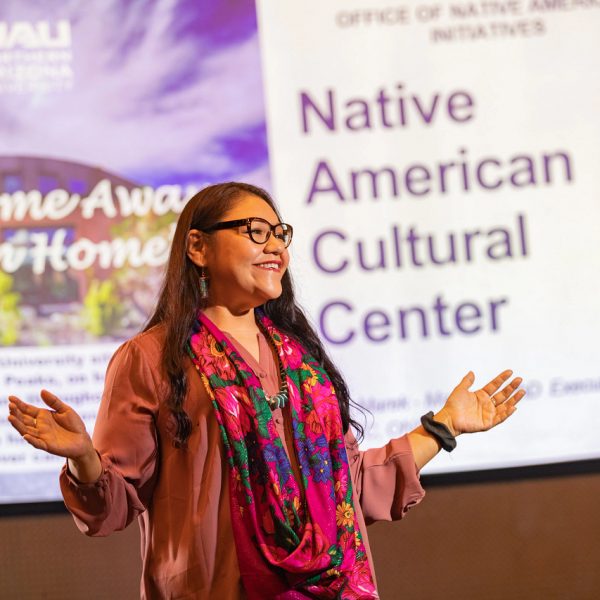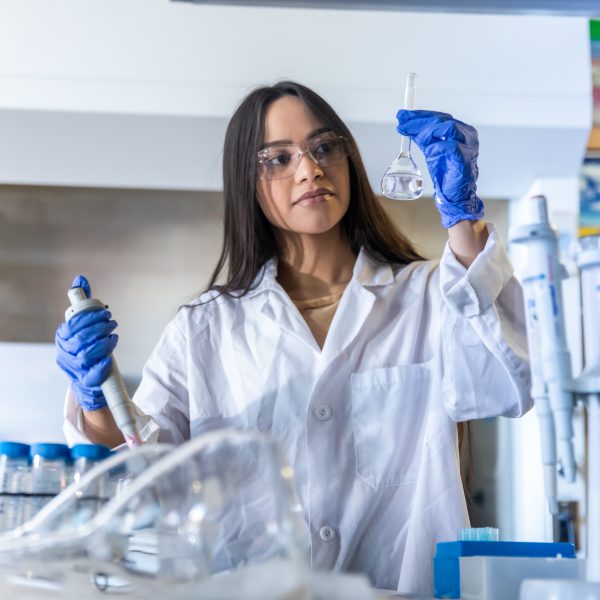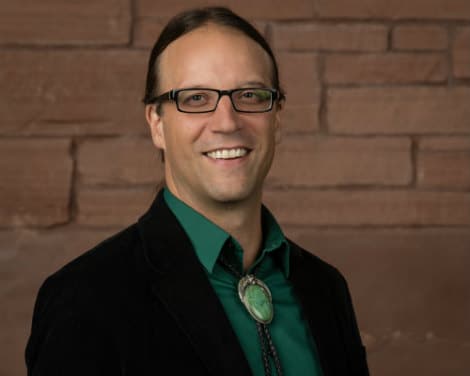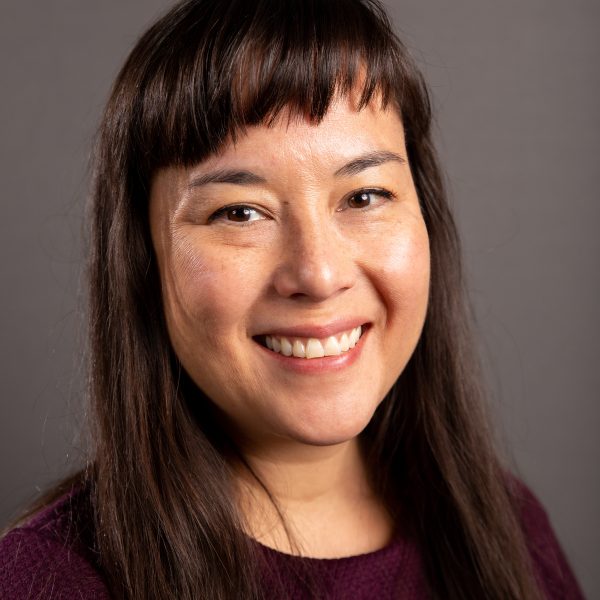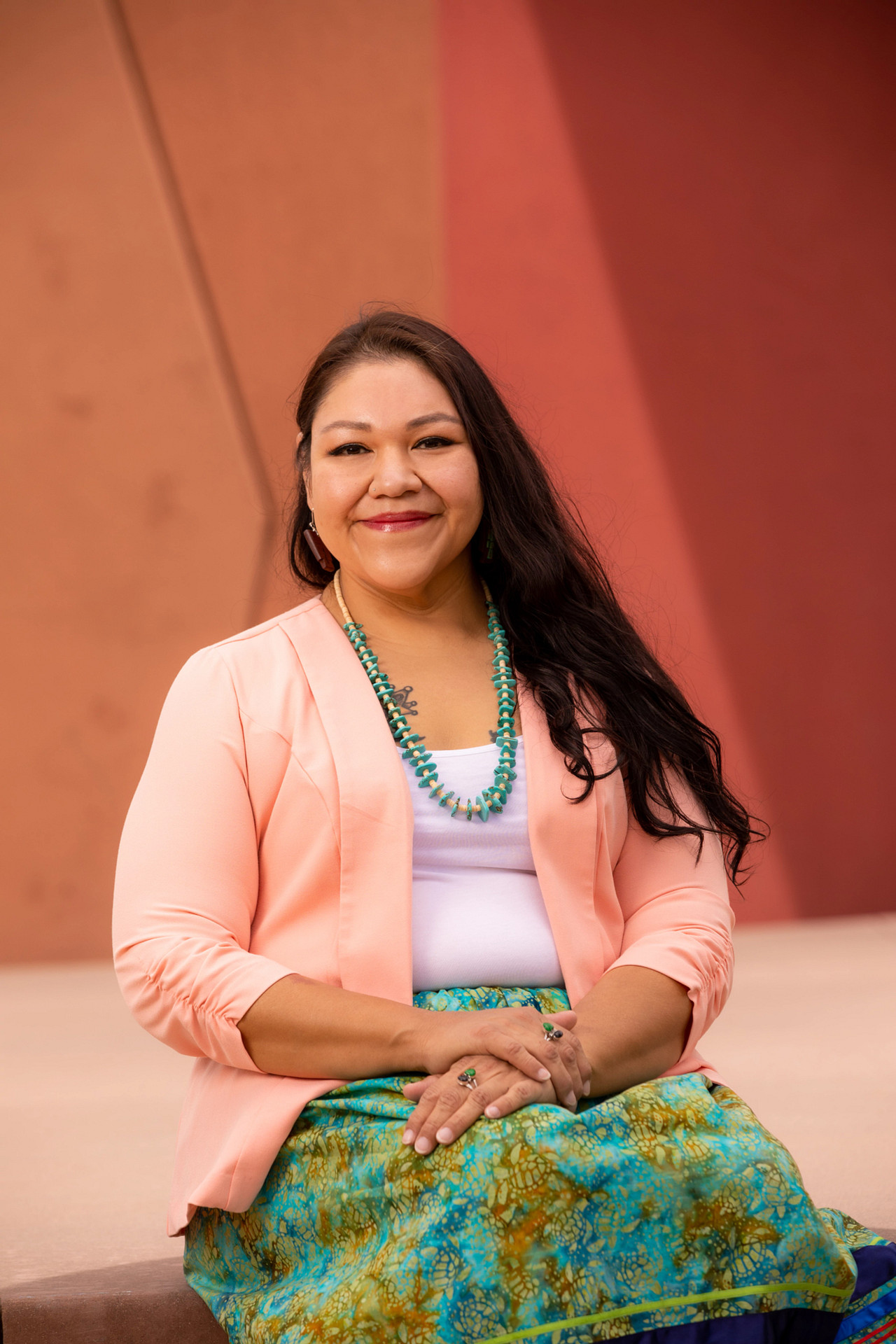
Ora Marek-Martinez uses the past to build a better future for Indigenous students.
Being a Native American woman inspired Ora Marek-Martinez to dig into the past to learn how to improve the future.
She taps into her passion for ancient history and academia to promote Indigenous success at Northern Arizona University, where she is the executive director of the Native American Cultural Center and a professor of Anthropology. In both roles, Marek-Martinez (Diné, Nez Perce, Hopi) thrives at creating a safe place for Indigenous students to succeed—and feel at home—while on their road to college graduation.
“When I was going to NAU, especially in anthropology, there were very few Native students and so my experience was very isolating,” she says. “A few times, I almost dropped out of school. In my situation, coming from tribal lands into a very large school system, I lost my way.” Marek-Martinez is a member of the Mountain Cove clan who grew up on the Nez Perce reservation in northern Idaho before moving to Flagstaff at age 15.
At NAU, she eventually found on-campus support services at what has now become the Office of Indigenous Student Success. She received bachelor’s degrees in Anthropology and History, as well as a master’s in Applied Cultural Anthropology, from NAU. “It made me very aware of the support that our Indigenous students need.”
When Marek-Martinez did enter the workforce, she faced further challenges as colleagues and community members discounted her opinions and criticized her motives. Her response was to challenge herself in turn. While starting her family and “continuing the substantial work of decolonizing the fields of archeology and anthropology,” she went on to earn her PhD in Anthropological Archaeology from the University of California, Berkeley. She became the director of the NACC in August 2016.
She says the representation of Indigenous peoples is often overlooked within academic and mainstream spaces.
“I have always appreciated the opportunities that I found at NAU and have always wanted a way to give back and help, although I had never been presented with an opportunity to do so in a way that was meaningful to me and to the Indigenous community,” says Marek-Martinez.
As the director of the NACC, Marek-Martinez pursues the university’s decolonization by creating safe, welcoming spaces and increased opportunities for Indigenous students, staff, faculty, and other community members through the expansion of NACC programming, including mentorships, partnerships with the campus’s academic programs, and spiritual services. She hopes to be able to expand the center into hosting its own academic classes.
“Part of what we fight for as Indigenous archeologists is knowing what happened to our communities and our people, and also having to fight with our families about why we want to do this work and what our intentions are. For me, it’s always been about protecting our people, protecting our past, protecting our sacred places.”
Sharing the cultural knowledge gained from her work with the next generation, including her own children and the students she serves at NAU, furthers her efforts. Her success also set the path for her younger sisters, brother, and both her parents, who each later received their own degrees from NAU.
Shirley Conrad, senior administrative services assistant for the NACC, describes Marek-Martinez as “a mama bear.”
“The calmness about her and the care she shows is very genuine and resonates from her,” says Conrad, who is Athabasca Dënesuliné from Canada. “I know people feel very comfortable talking to her about everything. She really cares about her students, whether it’s the students in the classes that she teaches or all the students here at NAU. She cares about everything.”
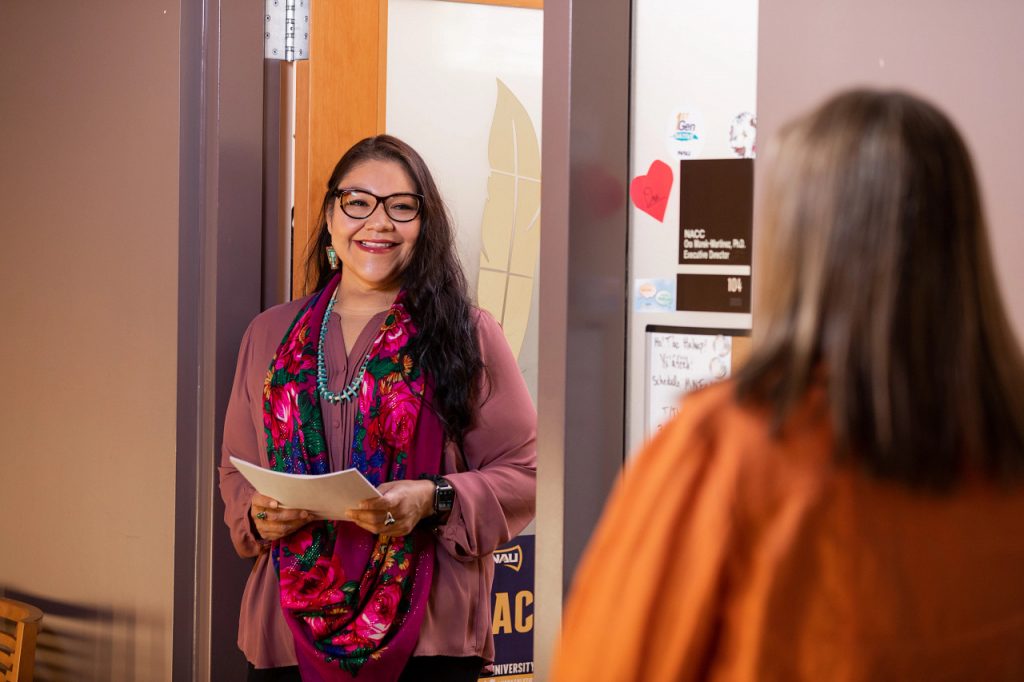
Autumn Cody, a Navajo/Diné and “Indige-Jack” student worker at the NACC, says she feels at home and supported at NAU.
“The Native American Cultural Center has always been a place that I’ve found a lot of support and comfort from, as a student, as an employee, and just as a person in this community on campus and the broader community as a Native American Indigenous person. College life isn’t easy. Having the NAU support system is invaluable,” says Cody, a Psychological Sciences major who participated in mentorships and a summer cultural exchange program led by Marek-Martinez through the NACC.
“Professor Marek-Martinez is a great example of success and of what’s possible as an Indigenous woman and the kind of power that possesses her role. She really steps in as a leader, and even a mom figure sometimes. She will go out of her way to make sure you have everything you need to be successful,” Cody says.
Marek-Martinez attributes her success to the people who inspired and supported her journey.
“It’s really important for us to do this work for our people. It’s probably one of the most difficult things that a young person or anybody will go through, getting those degrees, but it’s so critical to do that work,” she says. “Because whether or not we realize it, we’re continuing those paths that our ancestors have set for us and we’re creating those paths for our future generations. My people needed me. I was there for that call to action. My elders talked about how we need people to go to school and to learn about these other ways and to bring that back to help our people. For me, it’s remembering where you come from and remembering that there are those people—those who are there now as well as our ancestors and future generations—who are relying on us to do the work and to push through these things and to make change for them.”
It’s not easy to make a house a home. Read Ora’s Q&A to learn about the specific ways she transformed the NACC.

